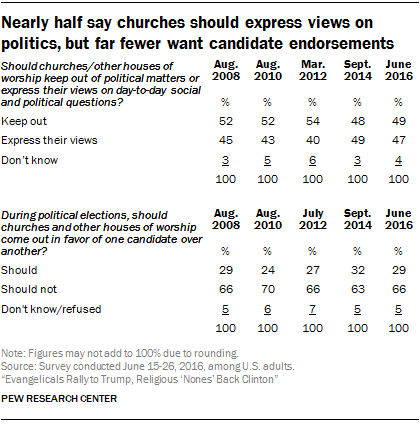Written by Econintersect
Early Bird Headlines 04 February 2017
Econintersect: Here are some of the headlines we found to help you start your day. For more headlines see our afternoon feature for GEI members, What We Read Today, which has many more headlines and a number of article discussions to keep you abreast of what we have found interesting.

U.S.
House votes to strike rule banning guns for some deemed mentally impaired (USA Today) Hat tip to Elliott Morss. Schizophrenics would be allowed to buy guns under this new House Bill. The House of Representatives approved its first effort of the new Congress to roll back gun regulations, voting to overturn a rule that would bar gun ownership by some who have been deemed mentally impaired by the Social Security Administration. The House voted 235-180 largely along party lines Thursday to repeal an Obama-era rule requiring the Social Security Administration to send records of some beneficiaries to the federal firearms background check system after they’ve been deemed mentally incapable of managing their financial affairs. The rule, when implemented, would affect about 75,000 recipients of disability insurance and supplemental insurance income who require a representative to manage their benefits because of a disabling mental disorder, ranging from anxiety to schizophrenia. It applies to those between age 18 and full retirement age.
Trump’s travel ban has revoked 60,000 visas for now (Reuters) About 60,000 visas were revoked under U.S. President Donald Trump’s executive order temporarily halting immigration from seven Muslim-majority countries, the State Department said on Friday, in one of several government communications clarifying how the order is being rolled out. The revocation means the government voided travel visas for people trying to enter the United States but the visas could be restored later without a new application, said William Cocks, a spokesman for consular affairs at the State Department.
Most Americans oppose churches choosing sides in elections (Pew Research Center) Nearly half of American think churches should express their views on politcal matters but less than 30% think theyy should ever endorse a political candidate.

White House: DOJ plans to defend Trump’s immigration ban (USA Today) U.S. District Senior Judge James Robart of Seattle on Friday issued a nationwide restraining order blocking the travel ban put in place by President Trump last week. Trump’s ban, created through an executive order, sought to block people from seven majority-Muslim countries from entering the United States. In issuing his decision, Robart was siding with Washington Attorney General Bob Ferguson, who filed a suit to block key provisions of the president’s executive order, which also bars Syrian refugees from entering the country.
Services Drive U.S., Inflation (Walter Kurtz, The Daily Shot)

Turkey
The real reason Erdoganists still love Trump despite ‘Muslim ban’ (Al Monitor) The executive order by US President Donald Trump, banning the citizens of seven predominantly Muslim nations from entering the United States, has sparked major protests all across America. Most Muslims, naturally, were happy to see this solidarity offered to them by Jews, Christians, atheists and many others who do not share their faith. However, the same solidarity did not come from some of the Middle Eastern governments that often claim to be the defenders of the faith. These include, as noted in a recent article in The New York Times, key Arab states such as Saudi Arabia and Egypt, which seem to have political expectations from Trump that they do not want to spoil. Notably, they also include Turkey, which not only has political expectations from Trump but also has a political elite that has a curious adoration for the new American president.
Russia
The One Russian Linking Putin, Erdogan and Trump (Bloomberg) The Russian ultra-nationalist dubbed “Putin’s Rasputin” by Breitbart News when it was run by President Donald Trump’s chief strategist, Steve Bannon, has emerged as an unlikely foreign-policy fixer for the Kremlin. Alexander Dugin, whose bushy beard gives him a passing resemblance to the Siberian mystic who bewitched the last czar’s family, says he played a key but largely clandestine role in patching up Russia’s relations with Turkey, an account confirmed by a senior figure in Ankara. And with people he calls ideological allies now in the White House, Dugin says he’s bullish on better ties with the U.S., too. One quote in the article:
‘He’s seen as a brilliant philosopher, but brilliance and madness are very close to each other.’
India
Apple to start making iPhone in India by June (Nikkei Asian Review) This move should help Apple crack into India’s huge smartphone market. The U.S. company will likely outsource production to Taiwanese partner Wistron, which has a manufacturing facility in the southern Indian city of Bengaluru.
China
Trump Defense Chief Seeks Diplomatic End in South China Sea (Bloomberg) Diplomatic efforts should be exhausted to resolve the South China Sea dispute, said U.S. Defense Secretary James Mattis, weeks after Secretary of State Rex Tillerson appeared to advocate a tougher stance. Speaking in Tokyo after a meeting with Japanese Defense Minister Tomomi Inada, Mattis accused China of “shredding the trust” of its neighbors. He said freedom of navigation remained absolute and that all nations should “play by the rules“.
US jettisoning ‘One China’ would trigger geopolitical earthquake (Nikkei Asian Review) In the less than two weeks since his inauguration, U.S. President Donald Trump has taken a series of controversial actions that have rocked the world. But he has not yet offered any clue about his real intentions regarding the so-called One China policy, which is a matter of great concern to East Asia. Trump indicated his willingness to reconsider this long-established principle, which, simply put, means Taiwan cannot become an independent nation. If the U.S. abandons its commitment to this principle, it would be a historic policy shift that could violently shake East Asia’s security architecture and the structure of economic relations among countries in the region.
Beijing-Hong Kong-Macau highway (Twitter) We used to think Chicago’s Dan Ryan Expressway was wide.








